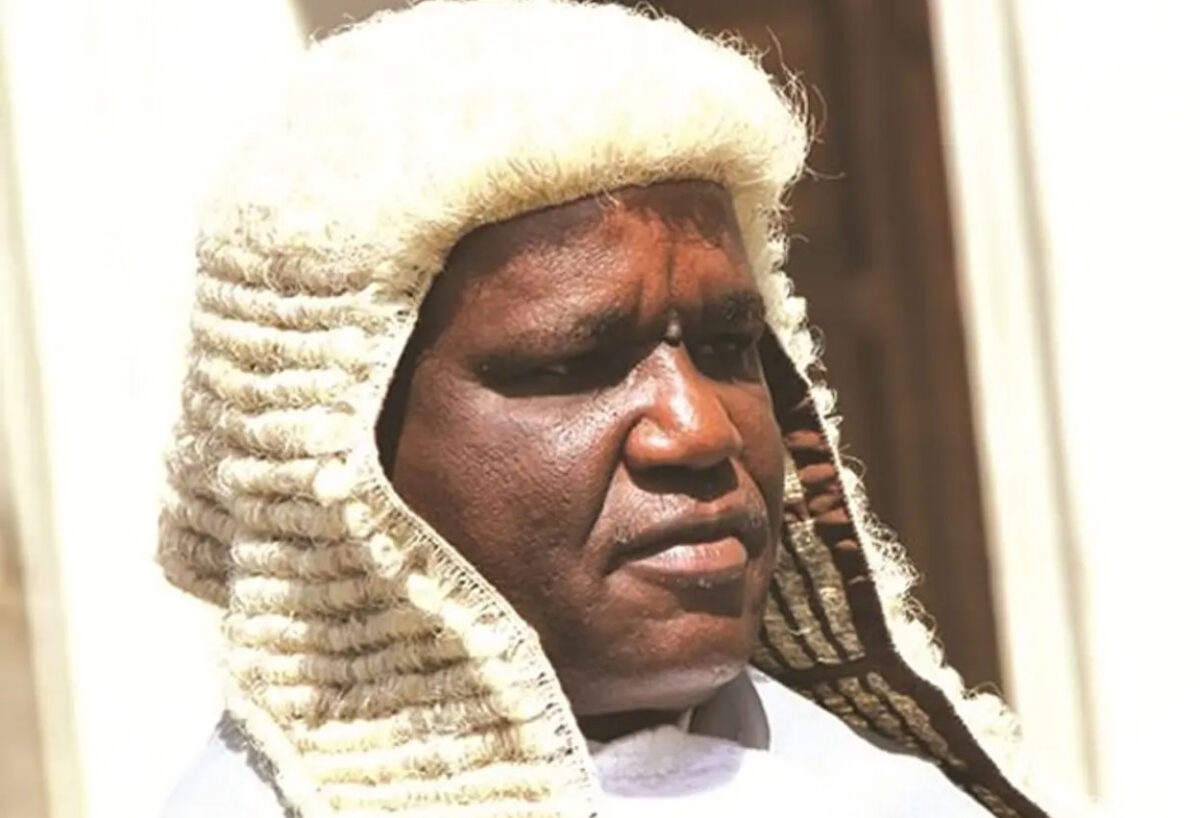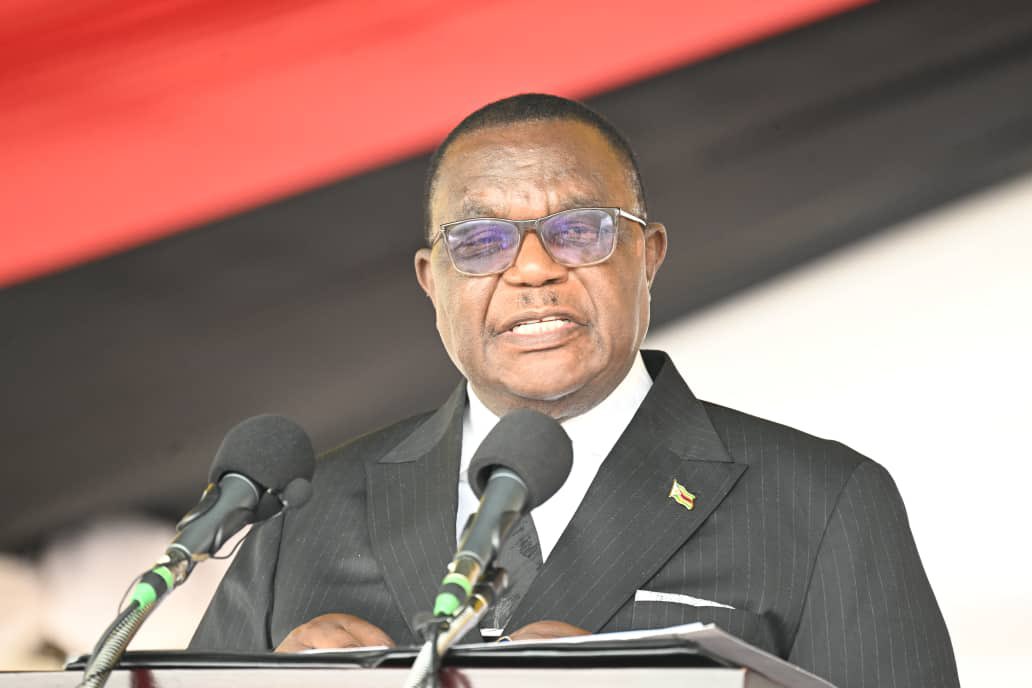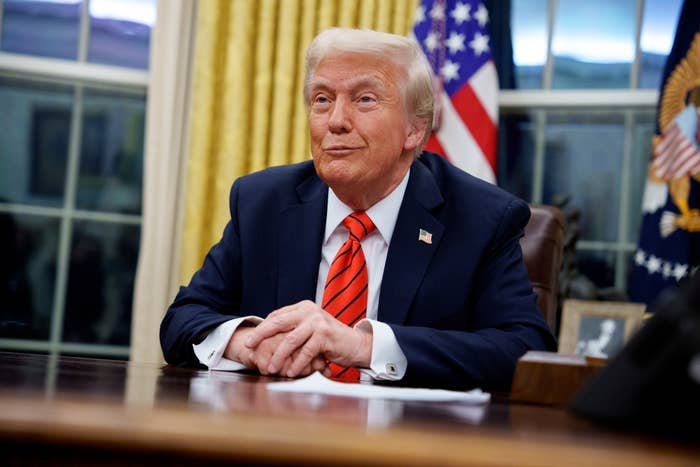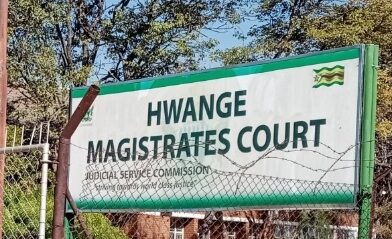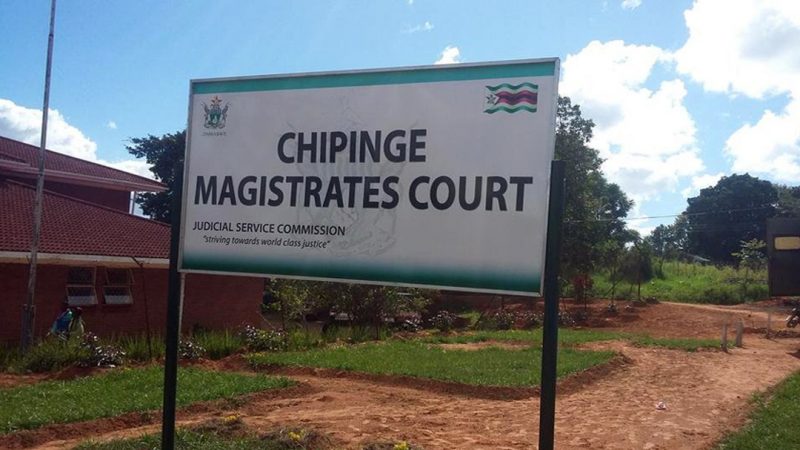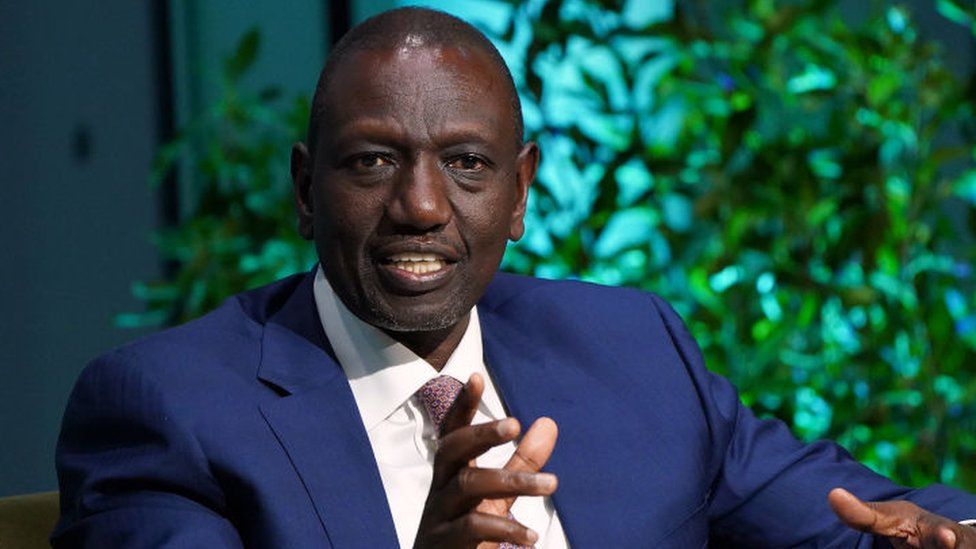HARARE – Chief Justice Luke Malaba brought “disgrace” to the bench after sitting in an appeal court where his judgement was being challenged, lawyers have said.
The incident, back in 2016, has been described as “awkward” by University of Zimbabwe law professor, Lovemore Madhuku.
The information has emerged now as Malaba faces growing accusations of targeting independent judges who defy his “unlawful” orders for dismissal or denial of career growth.
In February 2015, Malaba, sitting with Justices Paddington Garwe and Susan Mavangira at the Supreme Court, heard an appeal by the trustees of the Leonard Cheshire Homes Zimbabwe Central Trust in a matter in which they were seeking the eviction of Robert Chiite and seven others.
Chiite and the seven are physically handicapped and were residents of a rehabilitation home, in which they had been allowed to stay permanently. The trustees passed a resolution to sell the property and find the residents alternative housing, but the residents challenged the plan and won at the High Court.
On appeal, the Supreme Court found in favour of the trustees, with Chief Justice Malaba writing the judgement with the concurrence of Garwe and Mavangira.
Chiite and the other residents mounted an appeal at the Constitutional Court – and the Chief Justice was waiting for them there, together with Garwe, Mavangira and six other judges.
Malaba again elected to write the judgement, and unsurprisingly upheld his own judgement given at the Supreme Court with all the other judges concurring.
Professor Welshman Ncube, a constitutional law expert, told ZimLive: “I have no idea why the three judges would sit in a case purporting to be an appeal against their own judgement.”
Professor Madhuku described the situation as “uniquely Zimbabwean”, blaming a constitution adopted in May 2013 which whilst creating a new Constitutional Court gave Supreme Court judges a dual role of sitting in both courts for a maximum seven years.
The seven years elapsed on May 22 this year, but the Judicial Service Commission only just completed public interviews for Constitutional Court judges. The two courts will now be separated and have different judges.
“That was permitted by the constitution as it stood at the time,” Madhuku said. “The new constitution clearly said the Constitutional Court was to consist of the Chief Justice and the Deputy Chief Justice, and seven other judges who sat together as a bench to hear a matter. Consequently, judges of the Supreme Court held the dual responsibility of presiding over matters in both the Supreme Court and the Constitutional Court.
“It’s a uniquely Zimbabwean affair, coming out of that unique constitutional provision. I know of a case where three judges of the Supreme Court referred a matter to the Constitutional Court and when they sat as a ConCourt, one of those judges said the matter was wrongly referred.
“It was a very awkward situation. Ordinarily, the constitution doesn’t allow it. That period is now over (seven years). That will never arise.”
Other lawyers however disagreed with Madhuku’s arguments, pointing out that whereas it was a constitutional requirement that the Chief Justice and the Deputy Chief Justice must always be part of the nine ConCourt judges, the court itself had created a precedent in which it allowed matters to be argued in the absence of the Chief Justice.
One of those cases was a property dispute which came before the Constitutional Court on appeal in June 2017. It had been heard at the Supreme Court by then Deputy Chief Justice Malaba and Justices Garwe and Bharat Patel.
Malaba, who was elevated to Chief Justice in March 2017, was not present when the matter came up on appeal at the Constitutional Court, leading to tense exchanges between the judges and the lawyer for the appellants, Advocate Thabani Mpofu. Garwe and Patel rightly recused themselves on that occasion.
In Malaba’s absence, Advocate Mpofu argued that the Constitutional Court was improperly composed. Deputy Chief Justice Elizabeth Gwaunza presided, deputised by Justice Anne-Mary Gowora with other Supreme Court judges Tendai Uchena, Ben Hlatshwayo, Vernanda Ziyambi, Francis Bere and Antonio Guvava. To get their number to nine, two High Court judges – Justices Lavender Makoni and Felistus Chatukuta – were temporarily promoted to acting Supreme Court judges.
“Notwithstanding Section 166, for seven years after the publication date, the Constitutional Court consists of: (a) the Chief Justice and the Deputy Chief Justice; and (b) seven other judges of the Supreme Court; who must sit together as a bench of the Supreme Court. For the first seven years both the Chief Justice and the Deputy Chief Justice must sit together and it is common cause that the current court is not properly constituted,” Mpofu argued, according to this news report.
Mpofu argued that the Constitutional Court had boxed itself into a corner because even if Malaba was to be available, he would have to recuse himself because of his obvious self-interest. In the end, he claimed, the ConCourt could not proceed to hear the matter.
But Justice Gowora rejected his argument, ruling: “If we accept your position, this matter will not see the light of the day at all because we would have to wait for the retirement of the Chief Justice or the expiry of the seven-year period.”
She said it was not parliament’s intention to create an “absurdity.”
Lawyers say the significance of that case is that it confirmed that the Chief Justice did not need to be present for the Constitutional Court to sit, and that it was possible for judges, including the Chief Justice, to recuse themselves when a matter they heard at the Supreme Court reached the Constitutional Court.
On that basis, they said, Malaba and the two other judges should have recused themselves in the Constitutional Court case of Robert Chiite & 7 Others vs Trustees of the Leonard Cheshire Homes Zimbabwe Central Trust.
“It is improper for a judge to sit on appeal over his own judgement. Justice cannot under the circumstances be seen to be done,” one Harare lawyer told ZimLive, asking not to be named fearing Malaba’s vengeance.
“On the face of it, this amounts to gross criminal abuse of office and must excite the attention of the criminal justice machinery, not to mention that it must lead to the appointment of a tribunal to look into the Chief Justice’s fitness to remain in office.”
Another lawyer added: “What makes Malaba’s position untenable is that he wrote the judgements in both cases. He did not even pretend to have one of his judges defend him, he was defending himself. It was gross, a disgrace on his part.
“No man must stand between this man and a tribunal. If there’s an explanation, if he thinks it was permissible, let him tender it to a tribunal.”
We asked the Judicial Service Commission (JSC) for a comment, but no response had been received after three days.
It has been a tumultuous year for Malaba, who was forced into a humiliating climbdown in July after judges of the Labour Court and the High Court took the extraordinary step of writing him a letter, resisting his directive that he must see all judgements before they are delivered.
The judges said Malaba’s directive was “highly objectionable and completely unacceptable.”
The directive “effectively sought to impugn and seriously undermine the independence of a judge who, in terms of the Constitution, is appointed as an individual to exercise, without fear or favour, such of the functions as are reposed by law,” the judges fumed.
Malaba, as head of the JSC, recently got Supreme Court judge Francis Bere fired for misconduct. He has now asked President Emmerson Mnangagwa to appoint a tribunal in another misconduct case involving Justice Erica Ndewere of the High Court who is accused of incompetence and taking too long to deliver judgements.
Justice Ndewere has gone to court to fight the referral to a tribunal. In bombshell allegations, she claims Malaba is seeking her ouster after she defied his “unlawful” directive not to grant bail to corruption-accused former Cabinet minister Prisca Mupfumira in August last year.
The final straw, she says, was when she gave bail to MDC Alliance vice chairman Job Sikhala last month.
A letter purporting to have been written by judges of all the courts in Zimbabwe was sent to Mnangagwa on October 26 and leaked online on Wednesday. It contains a string of allegations against Malaba.
“What is repeated in the public domain and on social media about the capture of the judiciary is no longer fiction or perception, it is in fact reality,” the ‘judges’ wrote.
JSC spokeswoman Rumbidzai Takawira, when asked if the letter was authentic, said they would address the matter through a statement. It had not been received at the time of publication.
The letter also refers to Malaba’s alleged misconduct when he was a magistrate in Bulawayo in 1984.
He was suspended and subsequently transferred from Bulawayo to Masvingo for obstructing the police while working as a magistrate. His suspension followed complaints by police officers that they repeatedly clashed with him at illegal drinking spots known locally as shebeens.
It was alleged that Malaba made it impossible for the police details to discharge their duties as he would threaten them with the fact that he was a magistrate. The officers felt that it would be awkward arresting shebeen patrons who would ultimately appear before Malaba.
Malaba was required to make this disclosure before becoming a High Court judge, and again when he attended public interviews to become Chief Justice – but there is no evidence he did.

